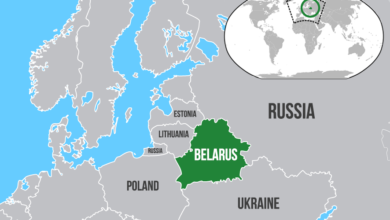In June, Greek university students, supported by militant trade unions, forced the government to back down from a set of education proposals intended to gut Greece’s public university system.
Student protests and school occupations were triggered by education reform proposals that included the repeal of
 |
The education reform proposals included five particularly egregious elements. Students and workers waged a months-long struggle against the capitalist government to quash the proposals.
The first proposal opens the way to privatizing the education system. The second ends the free supply of course books. The third imposes limits on the length of studies. The fourth effectively limits students and student unions from having any say in crafting school policy and hiring faculty.
The fifth proposal repeals a right won decades earlier through struggle against the U.S.-backed dictatorship. Universities are legally considered places of asylum where police and security forces have no access. This was enacted following a police and army massacre in 1973 in which 16 people, including a six-year-old child, were killed and thousands wounded.
Student resistance fierce
The reforms were initially unveiled in December of 2005, immediately sparking protest. The Greek National Education Council formally presented the reform proposals in final draft on April 28. Students and teachers responded with a five-day walkout.
In June, the government adopted the proposals, with some additions. Students responded with militant protests and the occupation of over 400 universities and technical schools.
Greek students are highly organized. Student unions exist on almost all campuses. The Communist Party of Greece (KKE) and other left organizations, like Synapismos, play an important role in the unions. Student unions across the country held open assemblies of thousands of students to promote and carry out the occupations and protests.
On Thurs., June 8, a demonstration of 20,000 students was brutally attacked by riot police. One week later, more than 10,000 students marched through Athens, yelling “Down with the conservative government.” On the same day, the government backed down, announcing it would not be taking up the reforms during the summer parliamentary session.
But the students continued the struggle, demanding that the reforms be thrown out completely. On June 22, students held large demonstrations in Athens and Salonika that were joined by thousands of striking workers.
During the last week of June, in the midst of the protests, European education ministers convened in Athens, Greece, to discuss education throughout the European Union. While the capitalists took this opportunity to praise the reform proposals and the need for continued privatization, Greek students disrupted the meetings and continued their struggle against the attacks.
Struggle against EU-mandated reforms
Greece hopes to enter the European Union in 2010. And the newest education reform proposals are responses to demands placed on Greece by the EU to join.
The Greek government is carrying out attack after attack on workers and students in an effort to conform to the EU’s neoliberal agenda. Students and workers have joined together in struggle against the whole set of reforms.
On June 22, in solidarity with the student protests, Greece’s largest public- and private-sector unions launched a 24-hour strike. The strike closed all public transportation, banks, public utilities, and tax and government offices. Hospitals operated with only emergency staff.
That same day, nearly 50 flights at Athens International Airport were canceled when the workers called a four-hour work stoppage.
All of these reforms will be taken up by the government in September. But the students have promised to organize in the streets until the reform proposals are defeated. The unity of workers and students in the struggle against the government was an important factor in forcing the Greek government to concede.






